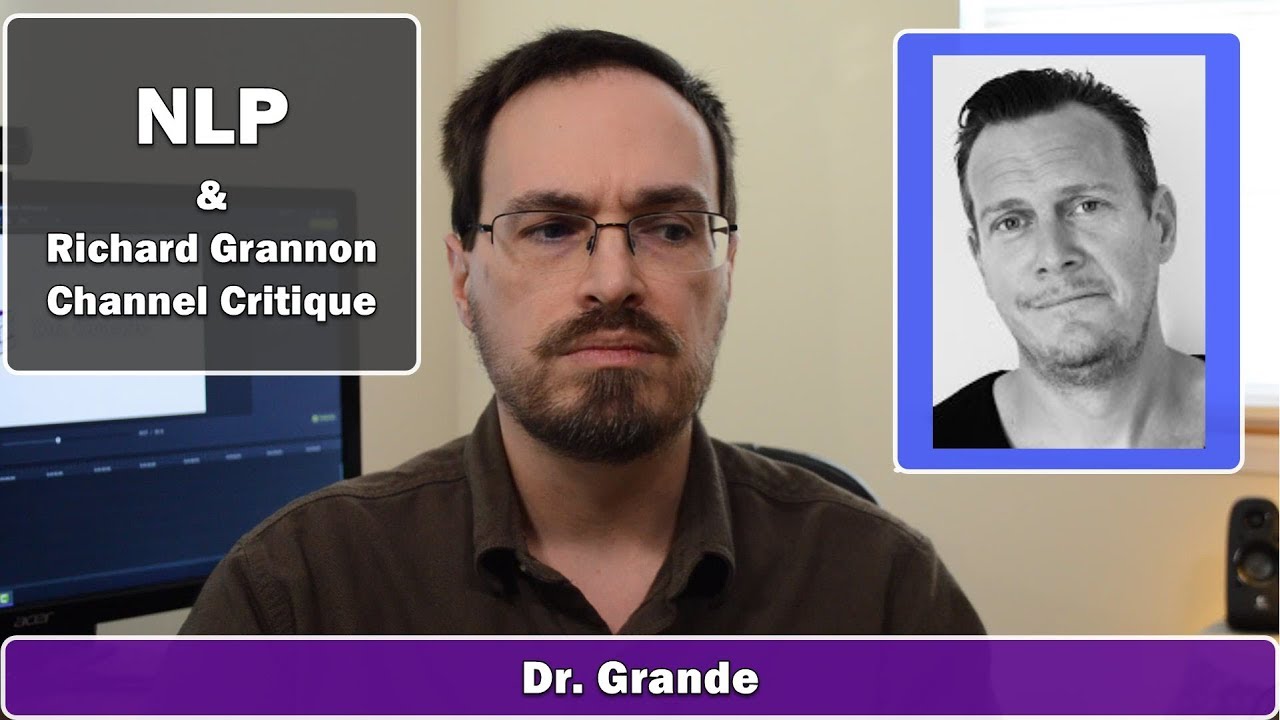Dr. Todd Grande
This video answers two question: (1) What is neuro-linguistic programming? And (2) Can I offer a critique Richard Grannon Spartan Life Coach YouTube channel. This may seem unusual that I’m combining a theoretical model with a critique of a YouTube channel, but my main criticisms of Richard Grannon’s channel revolve around neuro-linguistic programming, so I really have to explain NLP in order to explain my criticisms.
Neuro-linguistic programming coaches also go by a variety of names including certified life coach certified, NLP life coach, certified practitioner of NLP, certified master practitioner of NLP, and some refer to themselves as a certified hypnotherapist. NLP takes techniques and concepts from accepted empirically-based treatment modalities like cognitive behavior therapy, solution-focused therapy, motivational interviewing, psychodynamic therapy, and Gestalt therapy.
There’s no single agreed upon definition for but here are seven philosophical and theoretical assumptions of NLP from a recent article:
1. Experience has a structure; there are patterns in the way individuals organize their experiences.
2. The map is not the territory.
3. The mind and body are one system; there is a reciprocal relationship between mental and physical states.
4. People work perfectly – it is more useful to think of people as being effective at getting particular results
5. Individuals have all the resources that they need.
6. There is no failure, only feedback.
7. If what you’re doing is not working, try something else to be effective
Passmore, J., & Rowson, T. (2019). Neuro-linguistic programming: A review of NLP research and the application of NLP in coaching. International Coaching Psychology Review, 14(1), 57–69.
Grant, A. M. (2019). A personal perspective on neuro-linguistic programming: Reflecting on the tension between personal experience and evidence-based practice. International Coaching Psychology Review, 14(1), 45–56.
Wiseman R, Watt C, ten Brinke L, Porter S, Couper S-L, et al. (2012) The Eyes Don’t Have It: Lie Detection and Neuro-Linguistic Programming. PLoS
ONE 7(7): e40259. doi:10.1371/journal.pone.0040259
